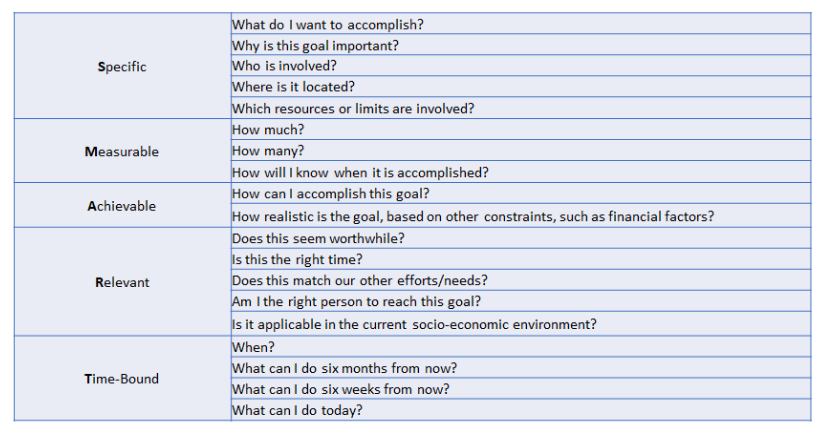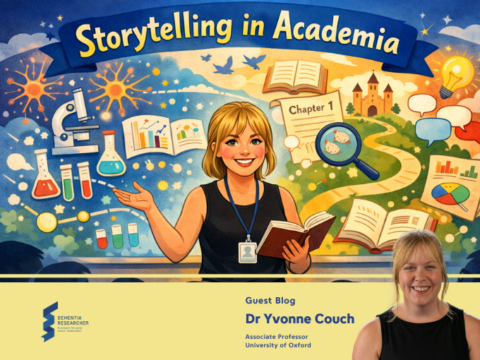
Happy New Year Everyone, I hope you all had a lovely Christmas and managed to have a well-deserved break.
Following the unexpected curve ball that 2020 threw at us last year, it may well be that this year you have decided not to set any new years resolutions, however, if like me, you do enjoy the idea of setting some personal and professional goals for the year, then this blog may be of interest to you.
In the past, my new years resolutions were often vague and intangible. I’m going to eat healthier, I’m going to progress at work, I’m going to write more publications, I’m going to start a new hobby… All very nice goals but without a doubt lacking in any strategy or ownerships and as such, like many of us, these resolutions were left behind after the first month (or week!) of the new year.
This year, I decided to do something a bit different for my new years resolutions and instead of plucking sweeping statements out of the air, I decided to really think about the year ahead, where I want to be in 2022 and what I need to do to get there. Now I really would like to say that I am the type of person who is laidback and just goes whatever way the wind takes me but thanks to my personality type (according to myer briggs, ENFJ by the way!), this is anything but me, and I am a person who like to have a 5-year plan for both personal and professional life. Thinking about where I want to be this time in a year really helped me to think about what I need to do to get there and therefore allowed me to tailor my new years resolutions to goals that were meaningful and therefore, (I hope) more likely to be stuck to.
Following on from deciding what I wanted to do and therefore what I needed to do to get there, I started to think about how to make this tangible and measurable, again making it all the more likely not to drop off my radar after January. I decided to think about the SMART framework and how this could be applied to my goals. For those of you who aren’t familiar with this framework, SMART is an acronym that you can use for goal setting and helps to make sure your goals are clear and reachable. In its basic sense, each goal you set should meet the following criteria and you can ask yourself the following questions when setting them:

SMART Table – https://www.mindtools.com/pages/article/smart-goals.htm
I thought it would be useful to provide an example of this framework in practice. Past me would have made the resolution: “To publish more papers”. Very relevant and worthwhile but so vague. This year, my resolution is as follows: To publish 2 papers based on my PhD, 1 in the Journal of Sociology of Health and Illness by May and 1 in Nursing Older Persons by October. This goal is attainable, I haven’t set myself the challenge of 10 papers in 12 months, it is also relevant as I want to continue to develop my research, it is measurable as I know when it has been achieved and it is time bound, making it all the more likely to become a reality.More information can be found here: https://www.mindtools.com/pages/article/smart-goals.htm.
Another example for my personal life, in the past my new year resolution would have been To get better at running. Based on the SMART framework, my resolution now looks like: I am going to run 10k a week, until I have reached a fitness level of a 10 minute mile. Again, this is realistic, I could have made the goal 15k but this doesn’t seem achievable, it is worthwhile as my fitness levels will increase, it in timebound and I will know when its accomplished by setting a fitness goal.
I have also made the decision this year not too be too hard on myself and not try to change myself or the world overnight. 2020 was tough enough and who knows what 2021 will bring. This year, another of my resolutions is to spend half an hour, three times a week doing a self-care activity. That could be going for a nice walk, treating myself to a spa treatment or just watching something trashy on the tv. I often find that resolutions are seen as a form of punishment or ways in which to improve ourselves and after the year we’ve all had, perhaps 2021 is the year to go easy on ourselves.
In 2021, let us set specific and attainable goals, some of which challenge us but mostly of which reward us for all the work we already do,
I’d love to hear your goals for the year.
See you next time,
Author
Dr Emily Oliver is a Consultant Admiral Nurse working for Dementia UK, visiting Fellow at the University of Southampton and Florence Nightingale Scholar. Emily recently completed her NIHR Clinical Academic Doctorate at the University of Southampton, in which the focus was relational care for people with dementia in acute hospital wards.
What goals did you set for yourself in 2021? Let us know and reply below.

 Print This Post
Print This Post




